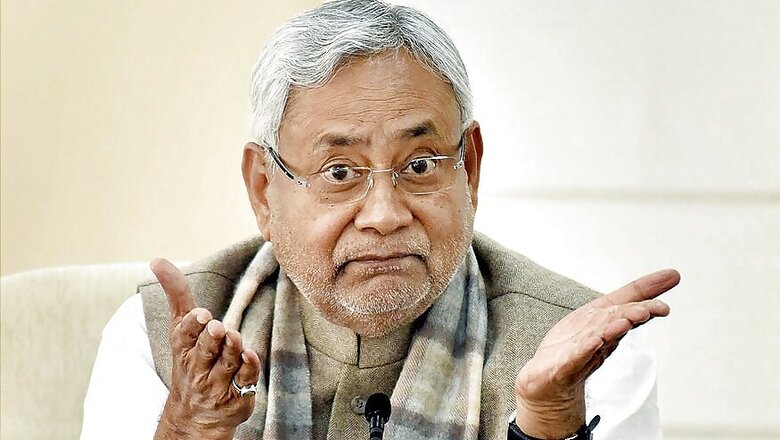
views
New Delhi: Three days after changing his stance on demonetisation and questioning the benefits of the exercise, Bihar chief minister Nitish Kumar on Tuesday upped the ante against the Centre and reiterated his party’s demand of awarding special category status to the state.
Kumar also questioned the benefit of the 15th finance commission, which has sent southern states on a war path against the central government over the proposal to use the 2011 Census instead of 1971 for allocation of tax funds to states. He said that while using the new population data was the right move, Bihar would not see any benefit and its share has actually gone down.
Kumar’s demand for special status comes after coming under pressure from former ally turned foe, RJD chief Tejashwi Yadav, who has repeatedly accused the Bihar CM of forgetting about the demand after allying with the BJP last year.
Elaborating on why Bihar should be eligible for the special status, he drew attention to the Bihar State Reorganization Act, 2000. The act, Nitish said, mandated the constitution of a special cell under the Deputy Chairman of the Planning Commission to look into the special financial needs of Bihar arising out of the reorganization of the state.
He demanded a similar kind of set up under Niti Aayog as it has replaced the Planning Commission.
Nitish said that analysis of data on development shows that some states were far below the national average on multiple parameters like per capita income, education, health, electricity, institutional finance and other indices of Human Development.
“Any rational economic strategy should foster both investment and devolution patterns which would enable these states to reach the national average within a stipulated time frame. Our demand for Special Category Status for Bihar emanates from this very premise," he said.
He said that his government has repeatedly raised the demand to the central government to accord special category status to Bihar, as it will enhance the availability of resources by lowering the state contribution in centrally sponsored schemes, improve access to external resources, act as a catalyst for private investment based on tax breaks and concessions and act as a spur to employment generation and improve life quality.
He also questioned the much-hyped revenue sharing formula of the 15th finance commission, which raises the state’s share from 32 per cent to 42 per cent, terming it a compositional shift.
“The increase in tax transfers was negated to a large extent by the reduction in allocations by the Centre for the central plan schemes and the centrally sponsored schemes to the states and union territories," he said.
“Furthermore, the state-wise distribution pattern also led to a decrease in Bihar's share from 10.91 per cent to 9.66 per cent. In fact, in the recommendations of the last four finance commissions, our share in the divisible pool of taxes has steadily gone down — from 11.58 per cent in eleventh to 11.02 per cent in twelfth to 10.91 per cent in thirteenth and then to 9.66 per cent now," he said.
Nitish also drew attention to the yearly devastating floods that ruin agriculture and said the state government has to incur heavy expenditure on relief and rehabilitation.
Strongly pitching for relying on the latest census for distributing resources, he said, “It is our firm view that latest population data is of utmost importance to capture the demographic change and it helps to assess the needs of the people quantitatively. Ultimately, basic entitlements are to be ensured to every citizen or else only "islands" of development would be created," he said.
“Therefore, 15th FC's term of reference to consider the population of 2011 for horizontal and vertical distribution is a welcome step and was long overdue. Some of the states are opposing this but their disagreement is not logical as the ToR recognizes the efforts of states in population control," he added.




















Comments
0 comment